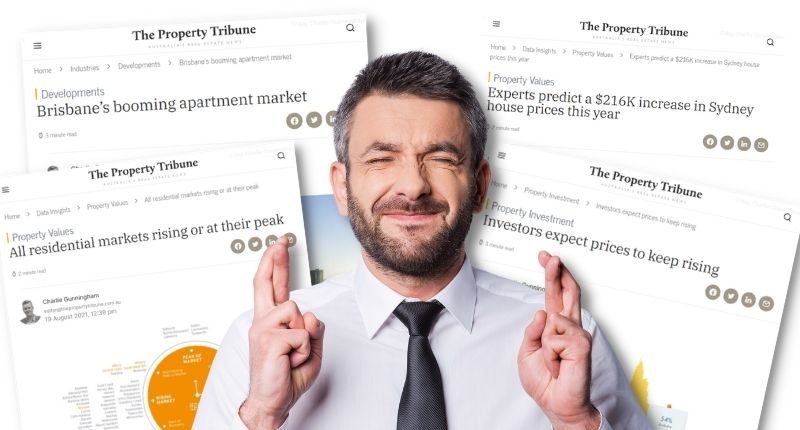- Overpaying is a real risk in boom markets
- 'Recent sales' mean in the past few weeks, not many months
- Must compare like with like properties
One of the biggest hurdles for buyers at present is assessing price in rising market conditions.
This is common when properties are being sold for ever-increasing prices almost week after week, depending on the location.
Generally, buyer and seller price expectations start to expand to such a degree that the chances of a deal being done are slim, unless both parties have experienced negotiators.
The last thing that buyers want to do, though, is to throw a silly number at a property out of frustration because they have missed out too many times.
This begs the question: How do you assess a property’s price in a rising market?
Truly recent sales
The average buyer is probably quite familiar with the sold sections of major online listing websites.
No doubt they spent many hours pouring over the results to try to help them work out what sort of property they can afford to buy in a particular location.
There are a few problems with this, though, as often those properties were sold too long ago to be reflective of the current market reality.
In the current market, if a property sold more than even a few weeks ago, then that sales ‘evidence’ may not be suitable anymore.
Another issue with easily obtained sales data online is that it doesn’t include off-market sales, which are happening all of the time regardless of the market conditions. In addition, many real estate agents don’t disclose their sale prices to online listing sites.
This means that buyers probably won’t have a complete understanding of the sales prices that are being achieved in their chosen location.
There may only be a handful of properties, which may not even be that similar, that they try to use to help them determine what price to offer.
Buyers agents (like us) have connections with local selling agents, which means we can find out about sales that have recently closed.
Sometimes, these sales have taken place a week or two ago and are unconditional, but the official sales record has not been produced yet.
These types of relationships allow us to have our finger on the pulse on sales activity and helps us to assess what a realistic offer price is.
Like with like
Speaking of comparable property, many buyers find it difficult to compare like with like when it comes to assessing recent property sales.
Buyers may not know the extra value that a certain percentage of additional land may bring to the potential market price of a property.
Likewise, when we are assessing price, we also take into consideration the property’s position in a street, its orientation, as well as whether it has potential for value uplift via subdivision or small property development more generally.
Ditto, when it comes to a property’s interior condition, such as more expensive flooring or perhaps renovations that have been completed to a superior level.
All of these factors are considered before we assess what is the best price to offer for a property for our clients – including terms and conditions that may be favourable to the vendor.
This gives us the very best chance of being the successful offer when vendors are considering which buyer ticks the most boxes for them.
~~
Before making any financial decisions, please do your own independent research, taking into account your own situation. This article does not purport to provide financial or taxation advice. See our Terms of Use.








